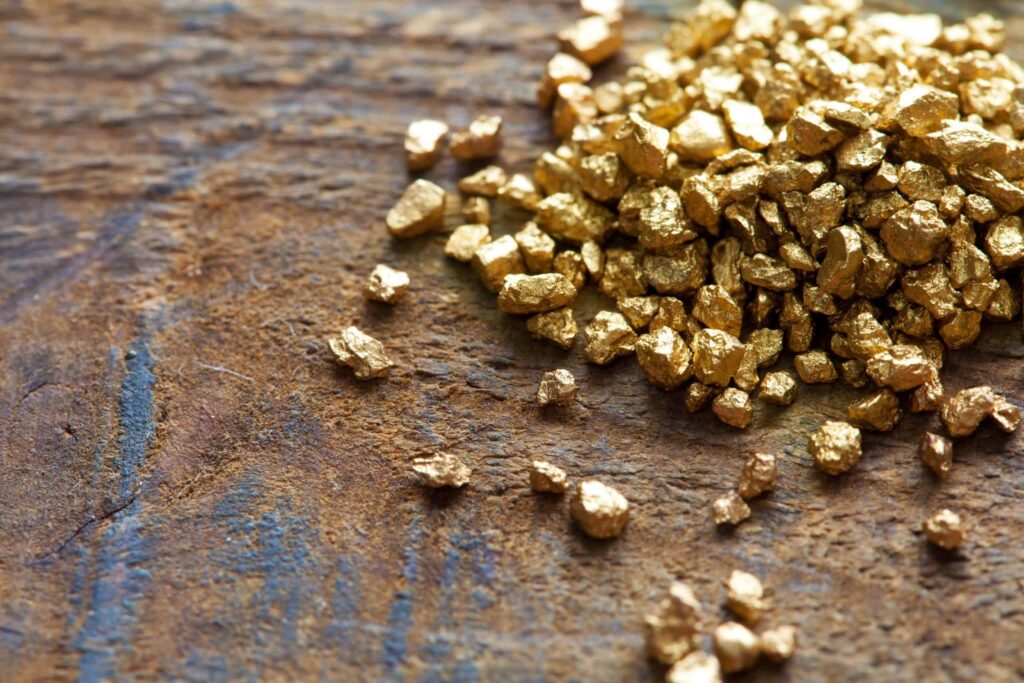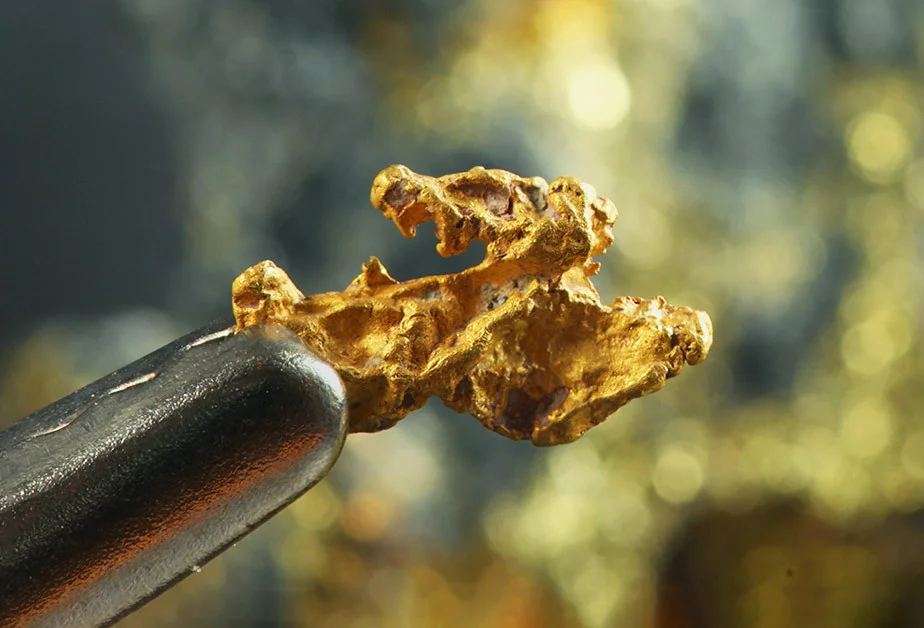A Path to Responsible Mining
The gold mining industry has been a cornerstone of economic development for many countries, but it also has significant environmental and social impacts. As global demand for gold continues to rise, there is an increasing focus on gold mining sustainability practices that balance the need for economic growth with the responsibility of minimizing harm to the environment and local communities. In this post, we’ll explore the importance of sustainable practices in gold mining, the key principles of sustainability, and how companies like Midas Africa Gold Co. are leading the way in responsible mining.
Global Gold Price Here.

Why Sustainability in Gold Mining is Crucial
Gold mining, particularly in developing countries, is a major source of income and employment. However, traditional mining practices can lead to environmental degradation, deforestation, water contamination, and air pollution. Moreover, without sustainable practices, mining operations can harm local communities by disrupting livelihoods and contributing to social inequality.
Gold mining sustainability practices aim to mitigate these negative impacts by ensuring that mining activities are conducted in a way that protects the environment, supports local communities, and promotes long-term economic development. Sustainable mining helps preserve ecosystems, reduce carbon footprints, and ensures that the benefits of mining are shared equitably among all stakeholders.
Key Principles of Gold Mining Sustainability Practices
- Environmental Protection
One of the core elements of gold mining sustainability practices is minimizing environmental damage. This includes reducing deforestation, preventing soil erosion, and managing waste. Sustainable mining operations prioritize the preservation of biodiversity and work to restore mining sites to their natural state after extraction is complete. Water management is another critical factor, ensuring that local water sources remain uncontaminated and available to surrounding communities. - Energy Efficiency and Reduced Emissions
Gold mining can be an energy-intensive process, but sustainable practices seek to minimize energy consumption and reduce greenhouse gas emissions. Companies are increasingly turning to renewable energy sources, such as solar or wind, to power mining operations. By adopting cleaner energy solutions and optimizing fuel use, gold mining sustainability practices help reduce the carbon footprint of mining activities. - Fair Labor Practices and Community Support
Sustainable gold mining ensures that the people involved in mining activities, especially those in rural areas, are treated fairly. This includes providing safe working conditions, fair wages, and opportunities for skill development. Additionally, gold mining sustainability practices often involve investing in local infrastructure, healthcare, and education, ensuring that local communities benefit from the economic opportunities created by mining. - Waste Management and Recycling
Mining produces large amounts of waste, including tailings, which can be toxic if not handled properly. Sustainable mining operations employ responsible waste management practices, including the proper disposal and treatment of mining by-products. Many companies are also working to recycle and repurpose mining materials, reducing the overall environmental impact of extraction activities. - Transparency and Accountability
Sustainability in mining is also about being transparent and accountable. Ethical mining companies regularly audit their operations and disclose their environmental and social impact reports. These gold mining sustainability practices ensure that mining companies are held accountable for their actions and remain committed to continuous improvement.
How Midas Africa Gold Co. Leads in Gold Mining Sustainability Practices
At Midas Africa Gold Co., we understand the importance of gold mining sustainability practices and are committed to ensuring that all aspects of our operations adhere to these principles. We believe that responsible mining is not only essential for the environment but also for the long-term success of the gold industry and the wellbeing of the communities where we operate.
- Ethical Sourcing and Fair Trade
We prioritize working with small-scale miners in rural communities, ensuring that they are paid fair wages and operate under safe conditions. This helps reduce exploitation in the mining industry and ensures that the benefits of gold mining are shared more equitably. - Water and Waste Management
Midas Africa Gold Co. employs advanced water management techniques to prevent contamination of local water sources. We also take pride in our strict waste management protocols, ensuring that toxic materials are properly contained and treated to avoid environmental damage. - Community Engagement
One of our core values is giving back to the communities we work in. We invest in local infrastructure projects, support education and healthcare initiatives, and work closely with local leaders to ensure that our mining activities benefit the community. These gold mining sustainability practices help create lasting positive impacts that extend beyond the life of a mine. - Restoration and Land Reclamation
After mining activities are completed, Midas Africa Gold Co. is committed to restoring the land to its natural state. Our restoration efforts include replanting native vegetation and working to rehabilitate the ecosystem. These efforts help minimize the long-term environmental impact of our mining operations and ensure that future generations can enjoy the land.
The Future of Gold Mining: Innovation in Sustainability
As the gold mining industry continues to evolve, innovation in gold mining sustainability practices is critical. Technology is playing a significant role in improving the efficiency and environmental performance of mining operations. From more energy-efficient mining equipment to advances in waste treatment and recycling, technological advancements are helping to reduce the negative impacts of gold mining.
- Green Mining Technologies
New green mining technologies are being developed to reduce the environmental impact of gold mining. This includes more efficient mining techniques that use less energy and produce fewer emissions. For example, some companies are exploring the use of biotechnology to extract gold from ore without the need for toxic chemicals like cyanide. - Blockchain for Transparency
Blockchain technology is revolutionizing the way gold is traded and sourced. By using blockchain to track the origin of gold, companies can ensure that their gold is sourced ethically and sustainably. This innovation is helping to improve transparency in the supply chain and build trust with consumers who want to know that their gold is conflict-free and ethically mined. - Circular Economy and Recycling
The circular economy is becoming increasingly important in the mining industry. Recycling gold from old electronics and other sources helps reduce the need for new mining and decreases the environmental impact. By embracing circular economy principles, the gold industry can help reduce waste and promote more sustainable resource use.
Global Gold Price Here.
The Role of Consumers in Supporting Gold Mining Sustainability Practices
Consumers play a critical role in promoting gold mining sustainability practices. By choosing to purchase gold from companies that prioritize sustainability, consumers can help drive demand for more responsible mining practices. Look for certifications like Fairtrade Gold or Responsible Gold, which indicate that the gold has been sourced and processed ethically.
Additionally, ask questions about where and how the gold was mined. Companies like Midas Africa Gold Co. are transparent about their sourcing practices and are proud to share information about their commitment to sustainability.
Conclusion: A Commitment to a Sustainable Future
Gold mining sustainability practices are not just a trend—they are the future of responsible mining. As the world becomes more conscious of the environmental and social impacts of gold mining, it is essential for companies to adopt sustainable practices that protect the environment, support local communities, and ensure the long-term viability of the industry.
At Midas Africa Gold Co., we are committed to leading the way in sustainable gold mining. By implementing ethical sourcing, environmental protection, and community engagement, we are ensuring that our operations leave a positive legacy for future generations.
Call to Action:
Join us in supporting responsible gold mining by choosing to work with companies like Midas Africa Gold Co., where gold mining sustainability practices are at the heart of everything we do. Contact us today to learn more about our sustainable mining efforts and how you can invest in ethical gold. Let’s build a brighter, more sustainable future—together.
Related The #1 Best Gold Buying Companies in Uganda
Related How to Safely Buy Gold from Uganda
Table of Contents
How do gold mining sustainability practices benefit local communities?
Sustainable practices ensure that local communities benefit from mining through fair wages, safe working conditions, and investment in infrastructure such as schools, healthcare, and roads. Sustainable gold mining often includes community development initiatives that support long-term economic growth, improving the quality of life for residents while preserving the local environment for future generations.
What are the main environmental impacts of gold mining, and how can sustainability practices reduce them?
Gold mining can lead to deforestation, soil erosion, water contamination, and loss of biodiversity. Sustainable mining practices aim to minimize these impacts through responsible land use, water management, waste treatment, and the restoration of ecosystems after mining operations. By implementing cleaner energy sources, reducing emissions, and ensuring proper waste disposal, companies can significantly reduce their environmental footprint.

